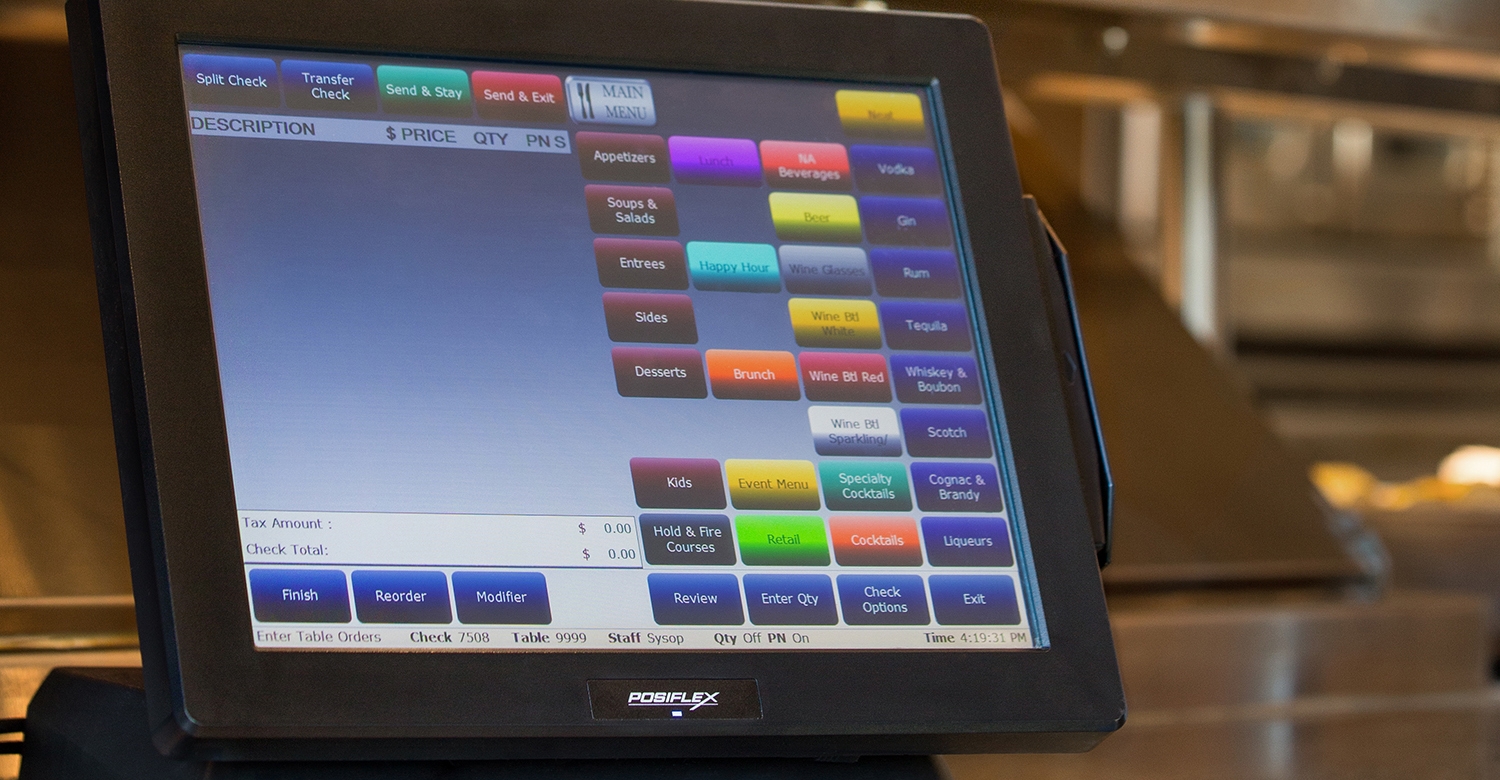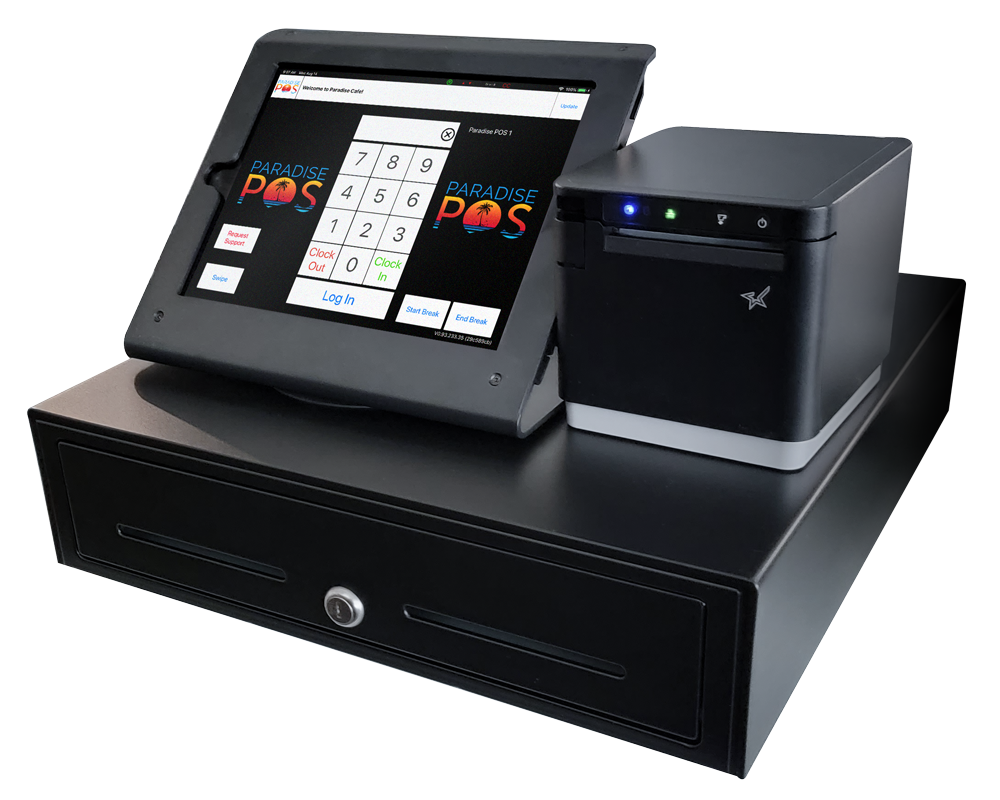10 Simple Techniques For Pos Machine
10 Simple Techniques For Pos Machine
Blog Article
Some Of Pos System For Small Business

POS Systems: Retail Point-Of-Sale Solutions Streamline Transactions
Getting The Point Of Sale Software To Work

Hardware Components of a Point of Sale System What makes a POS system tick? It's not simply software; the hardware plays a starring function. Believe of it as the body to the software's brain. Without the ideal hardware, even the most advanced POS software application is simply a quite face. Necessary POS Hardware So, what are the must-haves? Let's break it down. The central processing system, typically a computer or tablet, is the heart of the operation. The screen or touchscreen display permits personnel to connect with the system. A barcode scanner accelerate the checkout process. Keep in mind the days website of manually entering each code? The dependable invoice printer offers clients with a record of their purchase. A money drawer keeps your cash safe and arranged. A card reader allows consumers to pay with credit or debit cards. Diving Deeper: Beyond the Basics But wait, there's more! Depending on your company, you might need specialized hardware. For example, a dining establishment might incorporate cooking area printers to relay orders, while a retailer might utilize label printers for product tagging. Ever question how your local pastry shop immediately prints those delicious-looking labels? Selecting the Right Hardware: A Balancing Act Selecting the right hardware isn't just about purchasing the most costly equipment. It has to do with finding the sweet spot in between performance, durability, and budget plan. A little business just beginning might select a more basic setup, while a high-volume merchant will require robust, high-performance machines. Is it better to purchase new or used? Consider your alternatives carefully. A new system offers the most recent innovation and guarantee security, however a refurbished system can save you money. The Future of POS Hardware What does the future hold? Anticipate to see even more integration with mobile phones, biometric scanners for employee authentication, and advanced analytics control panels showed on larger, clearer screens. Think of a world where stock is immediately updated in real-time as products are scanned-- a world where you can track your very popular item from throughout the world. The possibilities are endless, and the hardware is continually evolving to meet the demands these days's companies. Are you ready to upgrade your point of sale system?
Software Characteristics and Capabilities: The Heart of Your POS System
Ever view a seasoned barista move through a hectic early morning rush? Their trick isn't simply caffeine; it's a seamless dance with their POS system. The software application is the conductor of your organization symphony, orchestrating everything from sales to inventory. What notes should you be listening for? What abilities truly matter in today's market?
Inventory Management: Beyond Counting Beans
Forget spreadsheets that haunt your dreams. Modern POS systems offer real-time inventory tracking, alerting you when your stock of artisanal coffee beans dips precariously low. Think about it as a digital guardian angel, avoiding those uncomfortable "Sorry, we're out!" minutes to consumers. What if you could likewise predict need based on historical data? Lots of systems now provide forecasting tools, an effective weapon against overstocking and lost sales. This assists prevent the circumstance of lacking popular products or collecting excess stock of slow-moving products, both of which can constrain capital and area.
Sales Reporting and Analytics: Deciphering the Information
Sales information is the brand-new gold, and your POS system is the miner. Forget simply understanding how much you offered today. Dive deep into the data to uncover patterns, determine your best-selling items, and comprehend customer habits. Which menu product sets completely with the day-to-day special? Which promo resonated most with your clients? These insights are not simply intriguing; they're actionable intelligence. Without trusted sales reporting, browsing the intricacies of service decision-making ends up being like cruising without a compass, increasing the chance of missteps and missed chances.
Client Relationship Management (CRM): Structure Bridges, Not Walls
Remembering a routine customer's name and preferred order is charming, but scaling that individual touch is difficult. POS systems with CRM capabilities allow you to track consumer purchase history, choices, and even birthdays. Think of automatically offering a discount on their birthday-- a little gesture that fosters loyalty and motivates repeat organization. There is the potential snag of bad information quality, which can lead to unreliable customer profiles and inadequate marketing efforts.
Payment Processing: Improving the Transaction
The checkout experience can make or break a sale. Smooth combination with different payment methods-- charge card, mobile wallets, even copyright-- is non-negotiable. Can your system deal with split payments? Does it use safe tokenization to secure consumer data? A clunky payment process is like hitting a sour note in your service symphony, possibly interfering with the whole efficiency. Guaranteeing compatibility with progressing payment innovations and adherence to security requirements are paramount for maintaining client trust and operational efficiency.
Staff Member Management: Keeping the Team in Sync
From clocking in and out to managing authorizations and tracking efficiency, employee management includes streamline operations and improve responsibility. Is scheduling a nightmare? Lots of POS systems offer incorporated scheduling tools, optimizing staffing levels based on anticipated need. A common barrier that is typically neglected is the obstacle of incorporating employee management performances with payroll systems, which can cause errors and inadequacies in wage computations.
Advanced Features: Leveling Up Your Operations
- Table Management: Suitable for restaurants, this function permits you to picture your dining-room, track table status, and manage bookings.
- Commitment Programs: Reward your finest consumers and motivate repeat service with integrated loyalty programs.
- Online Purchasing Combination: Effortlessly integrate your POS system with online buying platforms to broaden your reach.
Picking the right POS system is about more than just performance; it has to do with finding a partner that can grow with your company. Consider your existing requirements, expect future growth, and don't hesitate to ask the difficult concerns. The best software can transform your organization from a chaotic cacophony into a harmonious work of art.
Industry-Specific POS System Applications
Think about the regional bakery, busy with early morning customers craving fresh croissants. A generic POS system might manage transactions, but can it manage complex recipes, track ingredient stock, or instantly change production schedules based upon sales data? Most likely not. That is where the appeal of industry-specific POS systems shines.
Dining establishments and Hospitality
For busy dining establishments, speed and precision are paramount. The number of times have you seen servers juggling orders, adjustments, and splitting costs, all while trying to provide excellent service? A restaurant POS system improves these procedures, enabling table management, kitchen order tickets, and even online buying combination. These systems frequently consist of features like ingredient-level inventory tracking, vital for handling food expenses and decreasing waste. Ever question why your preferred dish is often not available? It might come from an absence of appropriate inventory management.
- Table Management
- Kitchen Order Tickets
- Online Ordering Combination
- Ingredient-Level Stock Tracking
Retail Solutions
Retail, with its varied inventory and customer interactions, demands a different set of tools. Think of a boutique clothes shop having a hard time to keep track of sizes, colors, and seasonal collections using a fundamental checkout system. An industry-specific retail POS system provides features like barcode scanning, consumer loyalty programs, and in-depth sales reporting. These systems can even integrate with e-commerce platforms, supplying a smooth omnichannel experience for clients. Did you know some retail POS systems can predict future sales trends based upon historical information? Now that is powerful!
The Dangers of an Inequality
Choosing the incorrect POS system can create substantial functional hurdles. A clothes shop utilizing a dining establishment POS, for instance, would discover it unsuitable for managing stock with sizes and colors. The absence of correct reporting and analytics could result in mistaken buying choices and lost income. The outcome might be comparable to attempting to fit a square peg in a round hole.
Key Factors to consider
Choosing an industry-specific POS system requires mindful evaluation. Think of your business's special needs and operational workflows. Does the system incorporate with existing software? Does it use the necessary reporting capabilities? Is it scalable to accommodate future growth? A well-chosen POS system is not simply a deal tool; it's a strategic asset that can drive effectiveness, enhance customer satisfaction, and eventually, improve your bottom line. Keep in mind, it is a financial investment in your company's future, not simply an expense.
Security Factors To Consider for Point of Sale Systems
Ever heard the tale of the mom-and-pop store that lost whatever since of a single, neglected security defect in their POS system!.?. !? It's a cautionary tale, and it highlights a critical element often eclipsed by the appeal of fancy functions and streamlined operations. The reality is, a POS system is only as great as its security. What good is a system that crunches numbers in a flash if it allows criminals to swipe customer's data just as rapidly?
The Vulnerability Minefield
The digital landscape is a battleground. Every POS system, no matter size or elegance, is a prospective target. Are you truly prepared for the risks prowling around the corner? The genuine pinch comes when you discover that your outdated software application has an open hole that hackers can exploit, turning your organization into an unwitting accomplice in identity theft. The difficulty is that hackers are crafty and are always altering their strategies.
Typical Security Gaps and Expert Tips
- Weak Passwords: "Password123" isn't cutting it. Usage strong, distinct passwords for all POS system accounts and alter them frequently. Two-factor authentication is a must.
- Unsecured Networks: Your Wi-Fi resembles leaving the front door open. Protect your network with strong file encryption (WPA3 if possible) and consider a different network for your POS system.
- Outdated Software Application: Software application vendors patch security holes all the time. Stopping working to upgrade resembles inviting problem. Establish automated updates or schedule routine maintenance.
- Employee Training: Your personnel is your first line of defense. Train them to acknowledge phishing attempts, safeguard passwords, and report suspicious activity.
Information Encryption: Your Guard Against the Dark Arts
Consider data encryption as a secret code. It scrambles sensitive information, like charge card numbers, making it unreadable to unauthorized users. Without file encryption, your customers' financial details resemble sitting ducks, ripe for the selecting by cybercriminals. It's not practically securing your clients; it has to do with securing your credibility and avoiding substantial fines.
PCI Compliance: The Rulebook You Can't Ignore
If you accept credit cards, you're bound by the Payment Card Industry Data Security Standard (PCI DSS) It's a set of security requirements designed to secure cardholder information. Stopping working to comply can lead to fines, charges, and even the loss of your capability to process credit card payments. It's a headache, yes, however it's a required one. Believe of PCI compliance as the cost of doing service in the digital age.
Consider this: every deal processed through your point of sale is a possible entry point for malicious stars. By implementing robust security steps, you're not just safeguarding your company; you're safeguarding your consumers' trust and guaranteeing the long-lasting viability of your operations. The security of your POS system isn't simply a technical concern; it's an organization important. It requires continuous watchfulness, proactive steps, and a commitment to staying ahead of the curve.